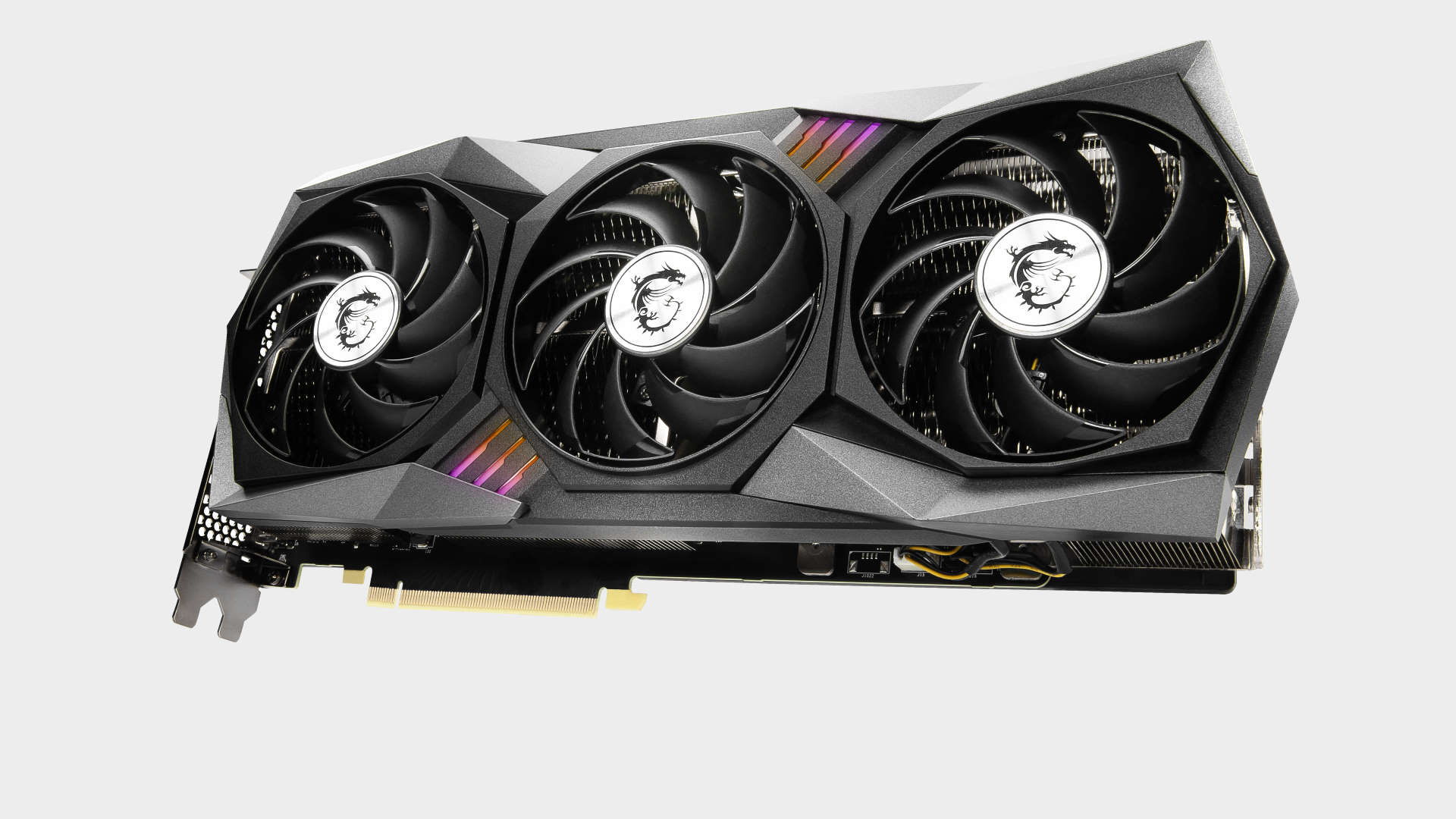Our Verdict
If you’re looking for a premium 3060 Ti with an emphasis on silence, this is the card for you.
For
- Amazingly quiet
- Rock solid build quality
Against
- Is it overkill?
- It is pricey
PC Gamer's got your back
While we all wish we could afford an Nvidia RTX 3090 or AMD RX 6900 XT, us rank and file PC gamers are more interested in more affordable and worldly options such as the RTX 3060 Ti. We've already checked out the Nvidia RTX 3060 Ti Founders Edition card here at PCG and were impressed by its generational performance uplift and general characteristics.
There’s always room for improvement though, and we've come to expect that from the premium tier partner cards such as in the MSI RTX 3060 Ti Gaming X Trio card we have here. It’s an absolute monster of a card. Is it worth the premium over entry level cards?
The RTX 3060 Ti shares a lot in common with the Nvidia RTX 3070. It uses a cut down version of the GA104 GPU with 4,864 activated cores versus the 5,888 of the RTX 3070. They both share 8GB of 14Gbps memory and of course you get all the Ampere features including improved second generation ray tracing support, DLSS and more. Check out our launch article for a closer look at the features and tech of the RTX 30-series' architecture.
Moving on to the MSI GeForce RTX 3060 Ti Gaming X Trio itself—say that 10 times fast—the first thing which becomes apparent is its sheer size. It would make a pretty good murder weapon (that's where your mind goes first?! - Ed.).
Architecture - Nvidia Ampere
GPU - Nvidia GA104
CUDA cores - 4,864
Base clock - 1,410MHz
Boost clock - 1,830MHz
Memory - 8GB GDDR6 @ 14Gbps
Memory bandwidth - 448GB/s
Ports - 3x DP 1.4a, 1x HDMI 2.1
Power - 2x 8pin
TGP - 240W
The Tri Frozr cooler is the same that’s used to cool the RTX 3080 Gaming X version with its much higher TDP, so we know it’s more than capable of cooling this less demanding GA104 GPU. It’s a triple slot card that’s 323mm x 140mm x 56mm so you’ll need to make sure it will fit in your case. You get a neat RGB light bar along the edge of the card, along with a lit MSI logo and another strip running across the fan shroud. It’s a good-looking card. At $489 it’s also quite a step up over the cheaper Founders Edition and reference cards, but it’s not out of line with other top tier cards like the Strix or Aorus from Asus and Gigabyte respectively.
The MSI RTX 3060 Ti, however, features a very large and surprisingly sparse PCB with an 8-phase VRM. There’s really no need for a Lightning-esque VRM with this fourth-tier Ampere GPU. It features a boost clock of 1,830MHz but the official clocks are all but irrelevant unless you’re mining with it or have a case with poor airflow. The TDP of the card has been increased to a rather lofty 240W compared to the 200W of an RTX 3060 Ti Founders Edition. The proprietary 12-pin power connector that you’ll find on the Nvidia-built cards is omitted in favour of a pair of standard 8-pin PCIe connectors.
This might be a good thing for the obsessive cable managers out there who dislike the central placement of the 12 pin connector. The card features the now typical set of display outputs including three DisplayPort 1.4a and a single HDMI 2.1 port. Type-C USB has been omitted from the Ampere generation cos who needs VirtualLink really.
At the end of the day, however, it’s the performance that matters most and the RTX 3060 Ti makes a massive jump over not only the RTX 2060, but it beats out the RTX 2070 and RTX 2080, and the Super models at that. In fact only the RTX 2080 Ti is faster out of all the Turing generation GeForce cards. The MSI Gaming X makes a mockery of the advertised 1,830MHz boost clock. After running for over 10 minutes at full load the card settled into a consistent boost clock of between 1,930 to 1,970MHz, albeit on an open test bench.
MSI RTX 3060 Ti Gaming X Trio benchmarks
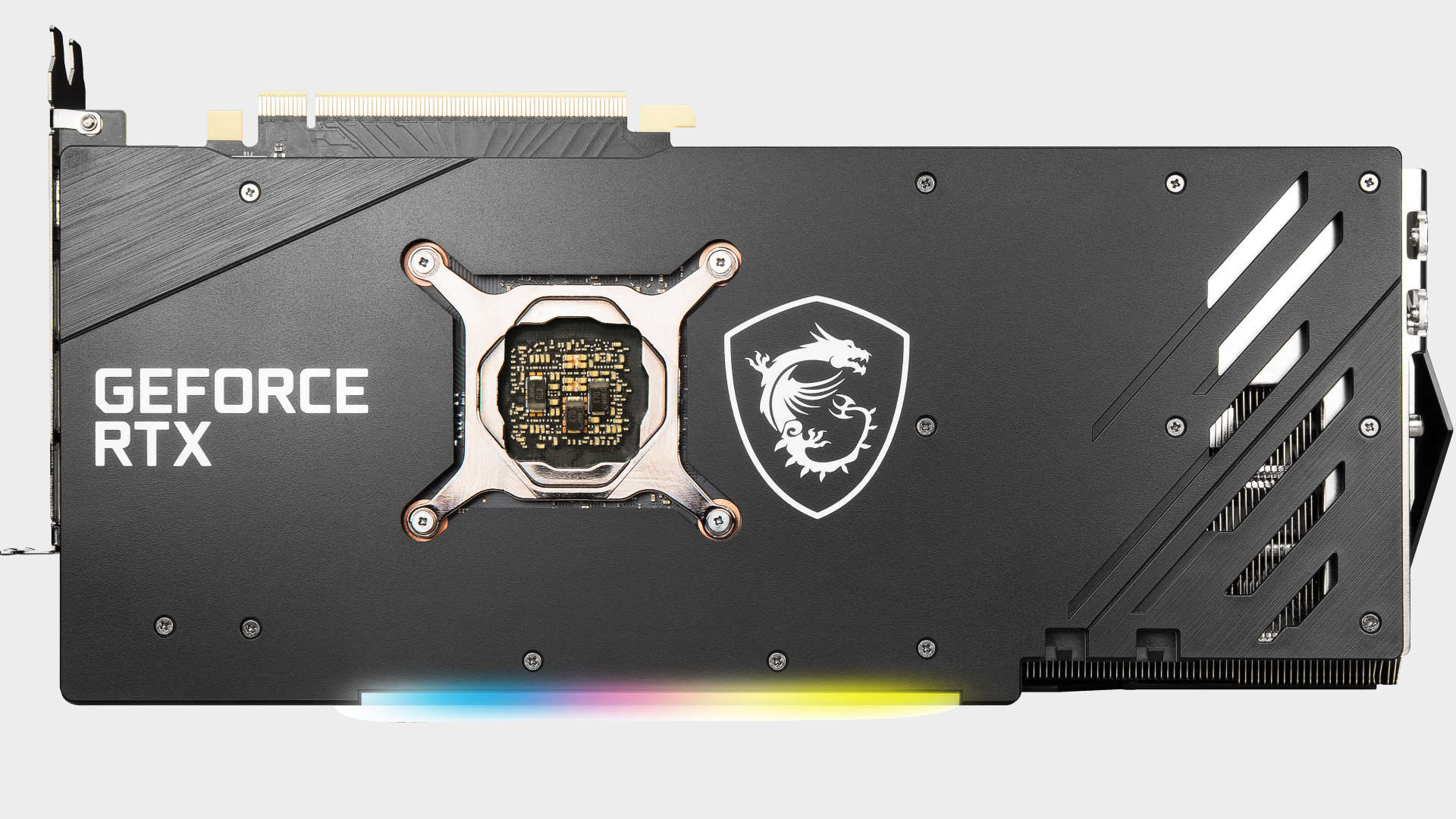
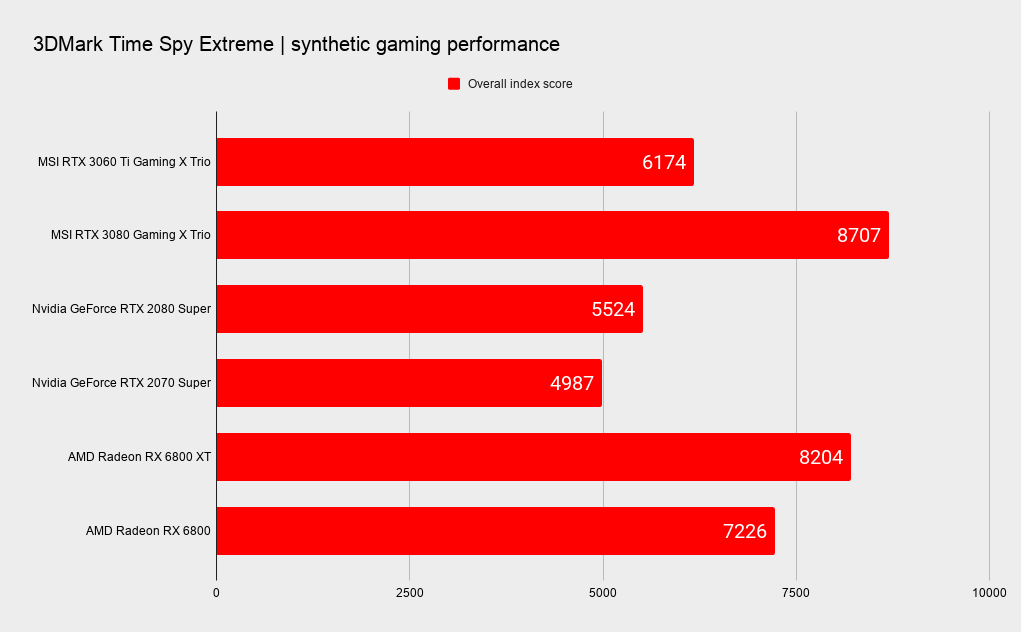
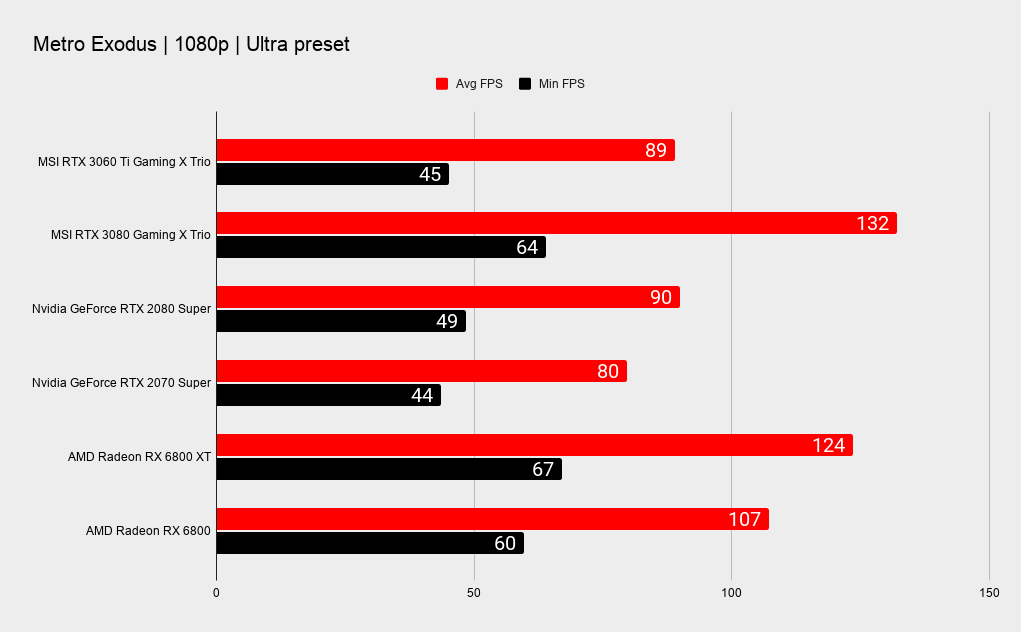
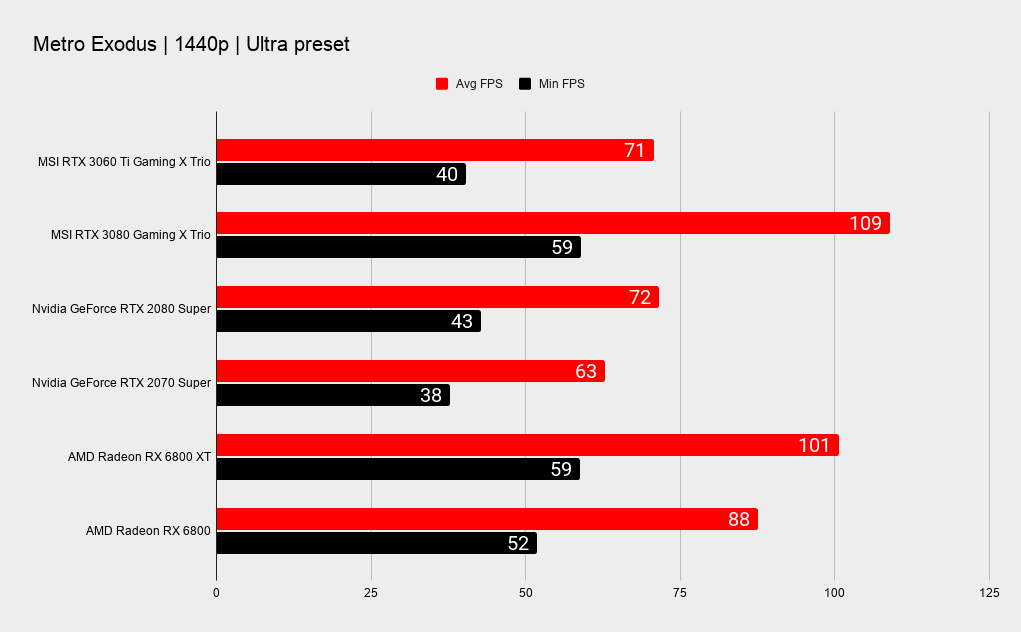
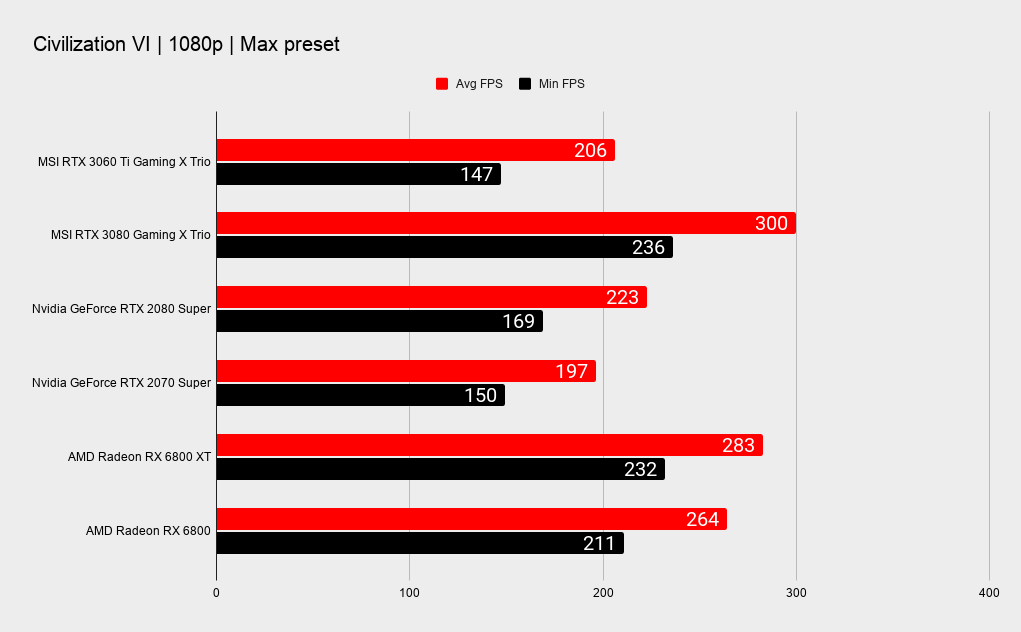
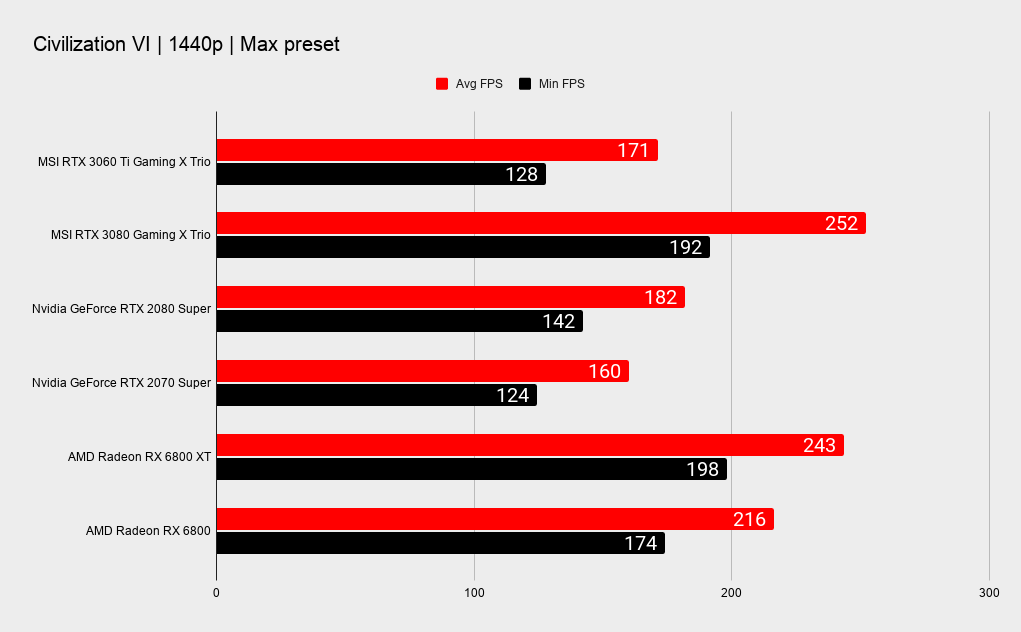
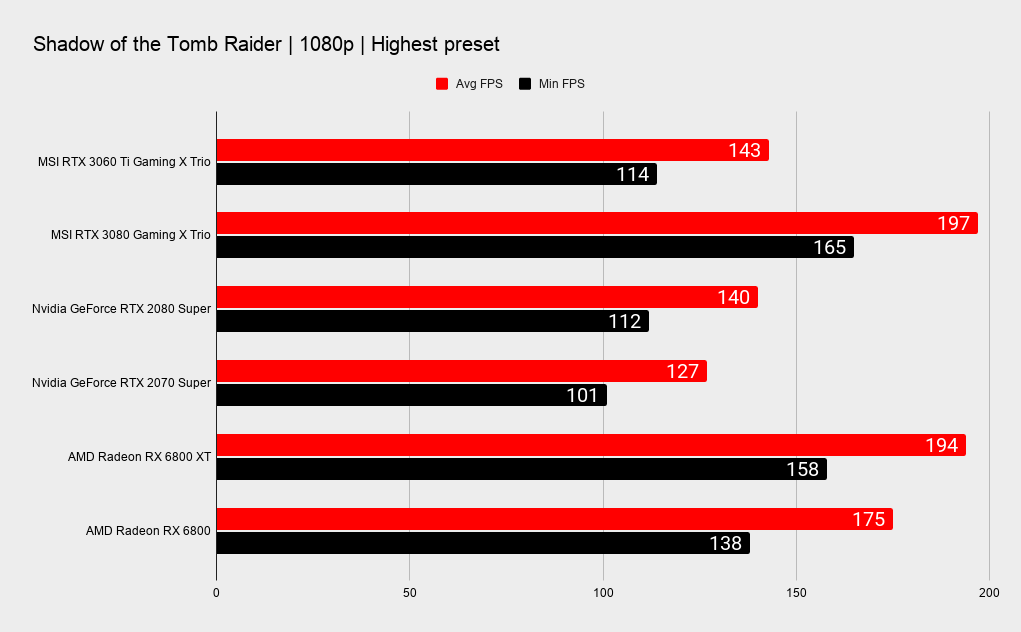
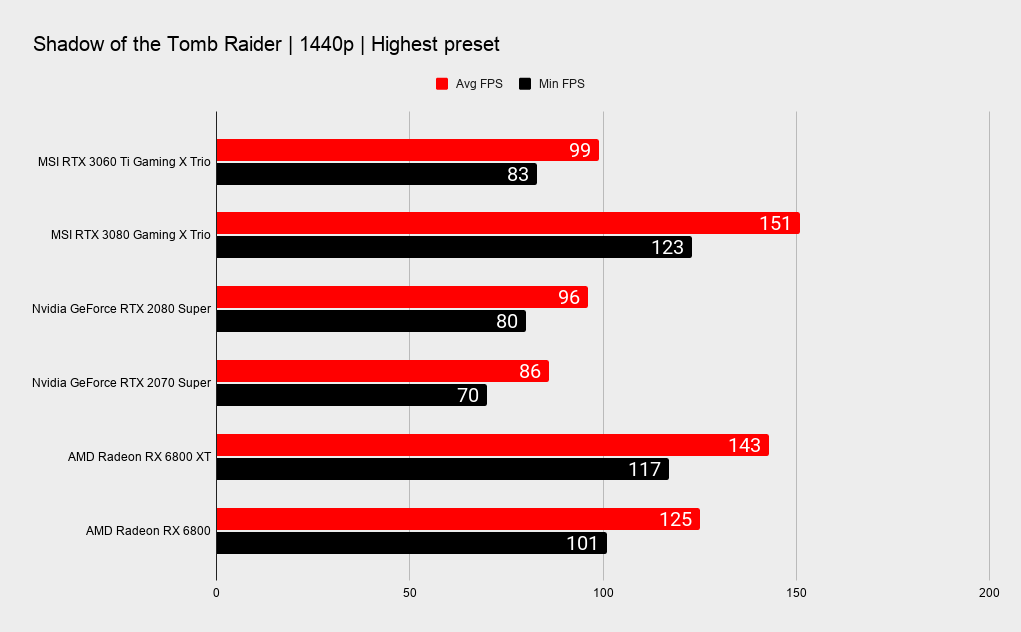
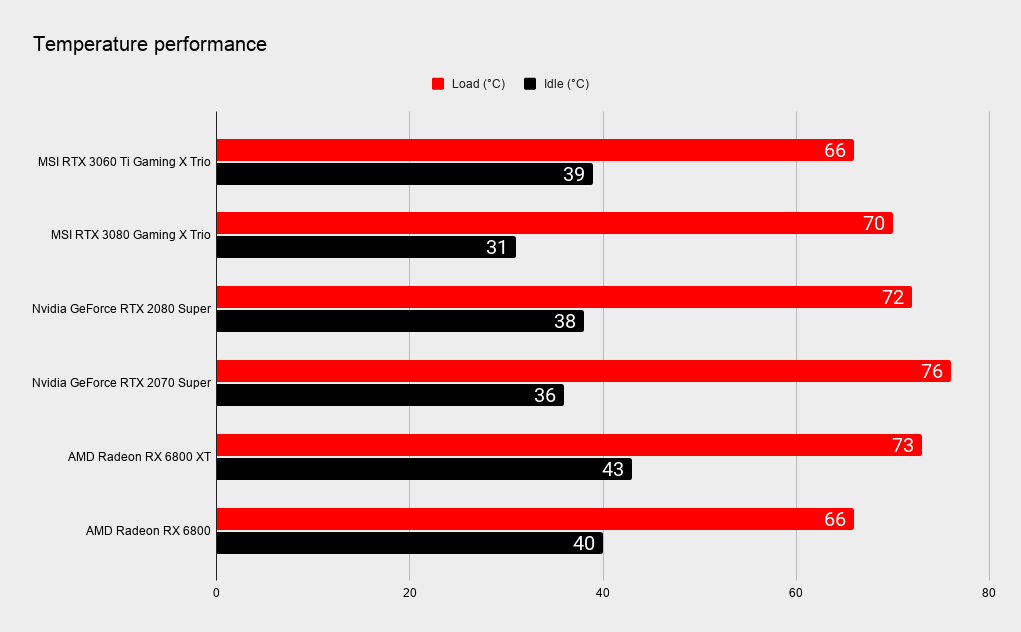
MSI's Gaming X Trio options are often the quietest models of graphics cards you can buy. The RTX 3060 Ti flavour continues that trend. It simply cannot be heard over the sounds of the other fans and AIO pump in our test system and it manages these low noise levels without compromising on performance one jot. We know this cooler can easily tame a much hotter RTX 3080 GPU so when it's tasked with cooling a GA104 GPU, which demands 100W less power, well, it's a walk in the park really. If silence is high on your list of priorities, it will be hard to do better.
A quick overclocking test resulted in a consistent boost clock of between 2,020 and 2,050MHz. That’s not bad, but given the way modern GPUs boost so effectively within their power budgets, a performance gain of around 5% doesn’t really seem worth it. We were also able to hit 2,000MHz on the memory with ease (or 16Gbps up from the default 14Gbps). More is likely possible if you put the time into it, though how relevant that will really be in terms of extra performance.
If you game at 1440p and you’re looking at a card to play at high settings then the RTX 3060 Ti is a great option. Something like Cyberpunk 2077 at maximum settings and 4K resolution will be beyond it, but then that’s beyond pretty much every card on the market. But at least you can play with ray tracing and DLSS enabled. These are things that are currently unavailable to AMD users.
When you look at a stunning game like Cyberpunk 2077, you’re left thinking it's the ‘killer app’ that pushes ray tracing over a threshold to where it will really become a core PC graphics technology. Ray tracing isn't just a cool bonus tech anymore. Adoption will only increase from here. Though, let's see how AMD and the new consoles look with it once its available.
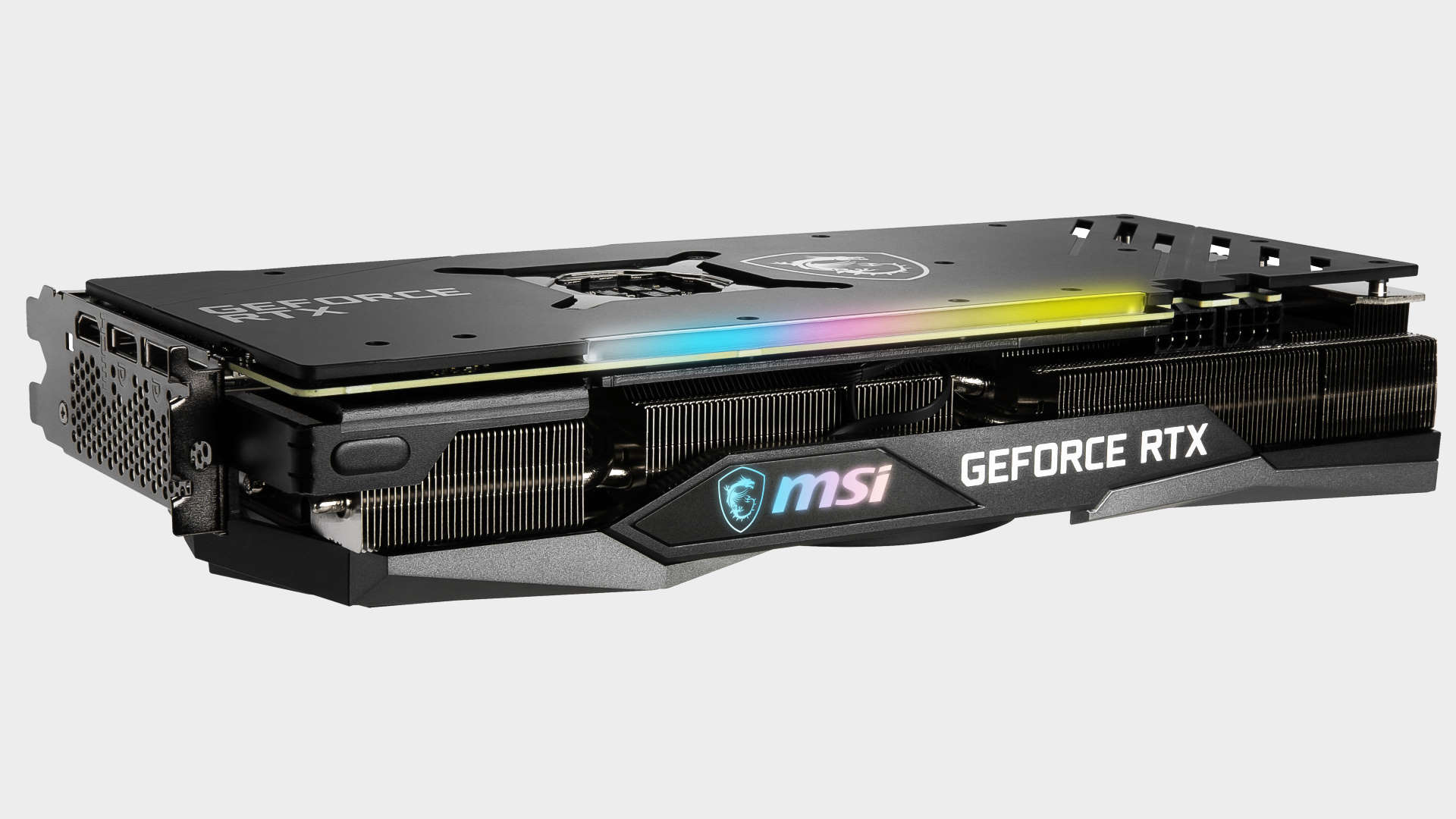
Now that that piece of commentary is out of the way, let’s get back to the MSI Gaming X Trio. Its much bigger cooler means that thermals and noise levels are hugely improved over the entry level RTX 3060 Ti cards, but then it costs an extra $70 or more too. There’s also the 40W increase in power consumption to consider. Whether the extra money is worth it is up to you. At this position in the market this kind of price premium isn’t as drastic compared to hundreds of dollars extra for premium RTX 3080’s but if you’re on a tight budget, it can make a big difference.
There’s also the thorny question of availability. Nvidia's RTX 30-series, and to an even greater extent AMD’s RX 6000 series cards, are suffering from poor or non existent stock levels. Waiting months for a GPU to come into stock is unacceptable. So, which card you buy may come down to what’s in stock at the split second you happen to be on the page.
It won't last forever though, and the MSI RTX 3060 Ti Gaming X is a great, chunky card and one that’s aimed at users who value quiet running and premium mid-range performance. If you want a nice splash of RGB on top of a card that leans towards low noise ahead of a few degrees of temperature then the MSI Gaming X Trio is one you’ll want to consider. Y'know, when you have the luxury of options...
If you’re looking for a premium 3060 Ti with an emphasis on silence, this is the card for you.

Chris' gaming experiences go back to the mid-nineties when he conned his parents into buying an 'educational PC' that was conveniently overpowered to play Doom and Tie Fighter. He developed a love of extreme overclocking that destroyed his savings despite the cheaper hardware on offer via his job at a PC store. To afford more LN2 he began moonlighting as a reviewer for VR-Zone before jumping the fence to work for MSI Australia. Since then, he's gone back to journalism, enthusiastically reviewing the latest and greatest components for PC & Tech Authority, PC Powerplay and currently Australian Personal Computer magazine and PC Gamer. Chris still puts far too many hours into Borderlands 3, always striving to become a more efficient killer.
